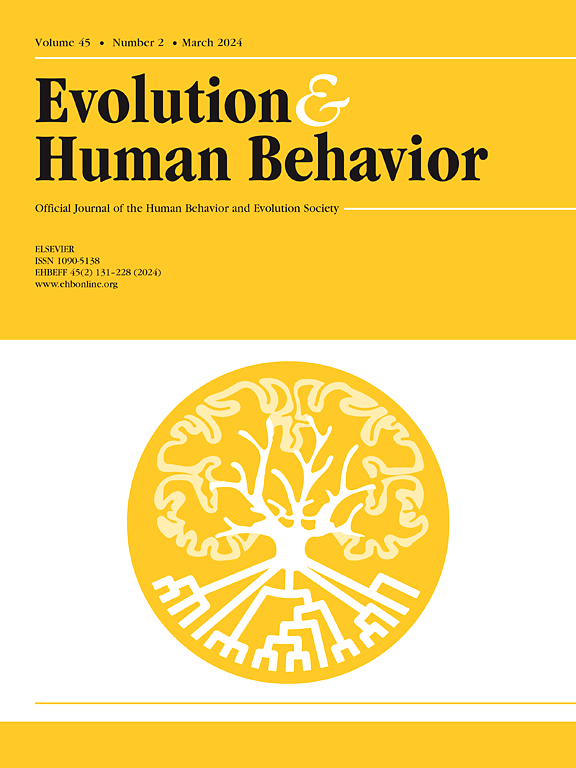可遗传的个体差异只是基因噪音吗?数量性状的结构说明了它们的进化
IF 3.2
1区 心理学
Q1 BEHAVIORAL SCIENCES
引用次数: 0
摘要
遗传个体差异的进化(例如人格、认知和精神病理学风险)是适应性解释和非适应性解释的支持者之间长期争论的主题。新获得的基因组数据表明,大多数数量性状符合我所说的“默认遗传结构”,其特征是极端的多基因性,常见和罕见的变异都有贡献,大效应变异往往比小效应变异更罕见,更年轻。此外,平衡选择的目标测试返回大部分为零或阴性结果。这些发现表明在遗传水平上存在广泛的净化选择;他们导致一些学者认为,遗传的个体差异本质上是不适应或不适应的,而援引平衡选择的进化假设与数据不一致。在这里,我要说明这种强烈的解释是没有根据的。我区分了关于遗传个体差异进化的四个问题,并解释了为什么这些数据不支持关于它们的适应功能(或缺乏适应功能)的全面推论。我还讨论了为什么平衡选择测试的信息量比通常认为的要少得多。虽然净化选择的普遍作用是无可争议的,但复杂性状的默认结构可能与广泛的进化情景相兼容,包括可遗传的个体差异可能具有适应性和功能性的情景,而不仅仅是中性/不适应噪声的表现。本文章由计算机程序翻译,如有差异,请以英文原文为准。
Are heritable individual differences just genetic noise? What the architecture of quantitative traits says about their evolution
The evolution of heritable individual differences (for example in personality, cognition, and the risk for psychopathology) is the subject of a long-running debate between proponents of adaptive and non-adaptive explanations. Newly available genomic data show that most quantitative traits conform to what I label the “default genetic architecture,” characterized by extreme polygenicity with contributions from both common and rare variants, with large-effect variants that tend to be rarer and younger than small-effect ones. Furthermore, targeted tests of balancing selection return largely null or negative results. These findings indicate widespread purifying selection at the genetic level; they have led some scholars to argue that heritable individual differences are essentially non-adaptive or maladaptive, and that evolutionary hypotheses that invoke balancing selection are inconsistent with the data. Here I show that this strong interpretation is not warranted. I distinguish between four questions about the evolution of heritable individual differences, and explain why the data do not support sweeping inferences about their adaptive function (or lack thereof). I also discuss why tests of balancing selection are much less informative than is often believed. While the pervasive role of purifying selection is beyond dispute, the default architecture of complex traits is potentially compatible with a broad range of evolutionary scenarios, including scenarios in which heritable individual differences can be adaptive and functional rather than just manifestations of neutral/maladaptive noise.
求助全文
通过发布文献求助,成功后即可免费获取论文全文。
去求助
来源期刊

Evolution and Human Behavior
生物-行为科学
CiteScore
8.30
自引率
9.80%
发文量
62
审稿时长
82 days
期刊介绍:
Evolution and Human Behavior is an interdisciplinary journal, presenting research reports and theory in which evolutionary perspectives are brought to bear on the study of human behavior. It is primarily a scientific journal, but submissions from scholars in the humanities are also encouraged. Papers reporting on theoretical and empirical work on other species will be welcome if their relevance to the human animal is apparent.
 求助内容:
求助内容: 应助结果提醒方式:
应助结果提醒方式:


